News
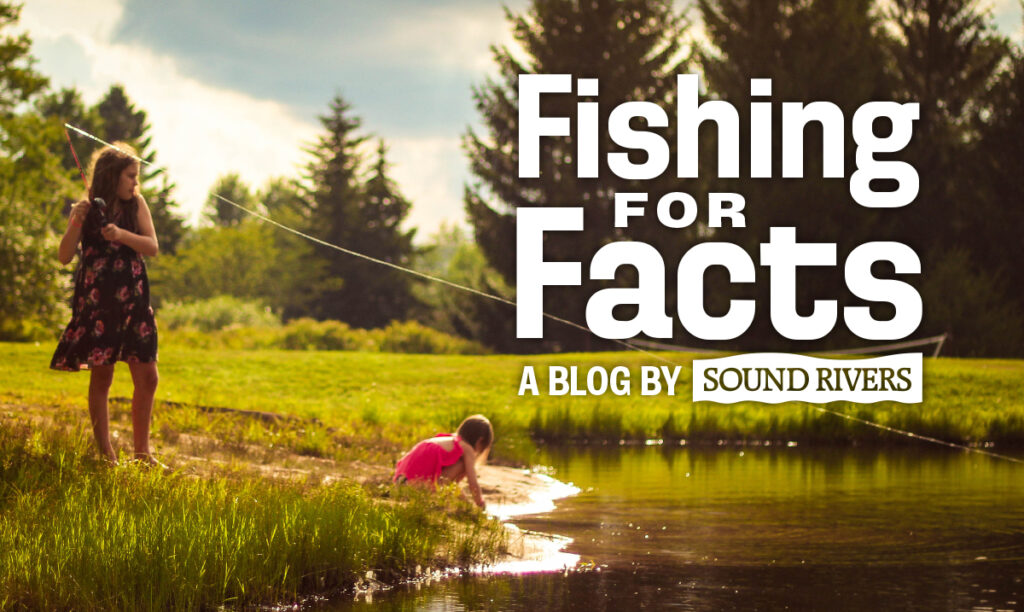
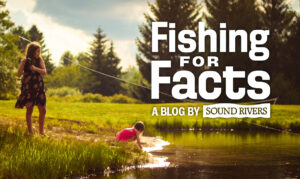 Fishing for Facts – June 1, 2017
Fishing for Facts – June 1, 2017
Budget woes, plastic bags and crime waves among the trees of Jordan Lake?
The North Carolina legislature’s time has been dominated in the past few weeks on budget negotiations. The Senate passed their version of the budget several weeks ago. Most notably, the Senate budget proposed very large program and personnel cuts to the Department of Environmental Quality (DEQ), adding up to a 10% reduction in the Department’s overall budget (a $7 million cut). Thankfully, the House budget, released this week, provides some relief to DEQ and does not include most of the Senate’s massive cuts. The two chambers will now begin the process to reconcile the two different budget packages, which will likely mean some of the bad provisions from the Senate will ultimately end up in the final budget package.
In other news, the efforts to repeal a highly popular plastic bag ban in Dare County continues. This repeal has now shown up in four different bills. So even though the local Chamber of Commerce, local business owners and residents have all lobbied for the ban to remain, powerful corporate interests continue to drive the repeal forward.
And lastly, for that scratch your head moment of the week, House Bill 56 (details below) contains a provision that will allow for the cutting of riparian trees and vegetation along Jordan lake in publicly owned spaces when, “the head of the local law enforcement agency with jurisdiction over that area that the buffers pose a risk to public safety.” When asked in committee whether or not there is actually a crime wave happening amongst the trees of Jordan lake, Senator Andy Wells (Republican – Catawba County) said he hadn’t seen any data on this.
Priority- North Carolina Legislation
We continue to have a slew of bad bills working their way through both chambers, and those requiring action are noted below. Remember, if you talk to your NC Legislator or Member of Congress about clean water, we want to hear about it! Send us an email and let us know what you said and what their response was!
House bill 56, “Amend Environmental Laws ” – THis year, the Senate and House have differerent versions of “Amend Environmental Law Bills”. This year, it appears as thought the House bill may be the one to move. House bill 56 passed out of the House with only two provisions, but once it was received in the Senate, a number of really bad provisons were added. As noted in the introduction above, one provision would allow for the chopping of trees and vegetation along Jordan Lake to protect “public safety” even though there appears to be no information available that suggests crime along the banks of the lake is a problem. There are other provisions that continue the legislature’s attempts at weakening riparian buffer rules. These rules are part of the most cost effective ways to protect clean water in North Carolina.
In addition, this bill added the repeal of the Outerbanks Plastic Bag Ban (sponsored by Senator Bill Cook- Republican, Beaufort County).
The bill passed out of the House and is currently in the Senate Finance committee.
Please contact your Senator and ask them to vote “no” on House Bill 56.
Other concerning legislation
There’s a bill (H576) in the state legislature that would allow the spraying of landfill wastewater and fluids into the air without a permit! When pressed in a committee hearing, bill sponsor Jimmy Dixon (Republican- Duplin County) was visibly angered by questions on how this would be regulated to protect public health.
As noted in the last blog post, toxicologist experts weighed in and noted “I wouldn’t want to be anywhere near a leachate aeration basin. The downwind emissions would very likely contain a very wide range of toxic materials”. It didn’t take long for the bill to pass out of the House. It is now in the Senate Rules committee after passing out of the Environment committee yesterday.
For more details and to dig deeper, check out the Smith Environment blog regarding this bill and the current state of information available on the safety of such technology.
Action! Please contact your senator and ask them to vote “no” on this bill.
Contact Information
To find your NC Representative or Senator, click this link:
http://www.ncleg.net/representation/WhoRepresentsMe.aspx
Pesticides Poisoning our Waterways
(from Waterkeeper Alliance)
Just before Memorial Day Weekend, when so many families were heading to their favorite waterbody to kick off the summer, the US House of Representative voted to pass a bill that would make it easier for companies to dump pesticides into our waterways. Pesticides, which are poisons meant to kill certain organisms, are often toxic to humans and other living creatures. In addition to harming aquatic life, pesticides in drinking water—even small doses—are linked to serious health problems for humans. In some states, pesticide contamination is a major reason why some waterways are declared unsafe for drinking, fishing, and swimming.
After passing the House, this bill will now be considered by the Senate in the form of the deceptively titled “Sensible Environmental Protection Act of 2017” (S.340). Perhaps better titled the “Poison our Waterways Act,” this bill would amend the Clean Water Act to allow unregulated discharges of pesticides into our nation’s waterways. It would also prevent states from making their own rules to protect waterways from pesticides. Exempting the pesticide industry from Clean Water Act permits means that companies would not need to track when they spray pesticides into water, which would keep the public in the dark, and would make it more likely that pesticides are applied excessively.
The “Poison our Waterways Act” is motivated by only one thing: the pesticide industry’s desire to remove all barriers to the application, and therefore sales, of pesticides. For more than a decade, the pesticide industry has fought to evade its responsibility for controlling the release of pesticides into waterways. In 2006, chemical industry lobbyists convinced the Environmental Protection Agency to give the pesticide industry an exemption from Clean Water Act permit requirements. Waterkeeper Alliance, several Waterkeepers, and partners brought a lawsuit that successfully overturned this exemption. The court held that the Clean Water Act requires permits for most discharges of pesticides into waterways. Ever since, the pesticide industry has been lobbying Congress to amend federal law and let them off the hook.
We are asking you to reach out to your Senators this week and ask them to oppose the Senate version of this bad pesticides bill, S.340. Don’t let our Senators give the chemical industry a free pass from the Clean Water Act!
Please call your Senator, and say:
“My name is [YOUR NAME] and I am a resident of ZIP code [ZIP CODE]. I am calling to express my concerns about Senate Bill 340. While this bill is called the “Sensible Environmental Protection Act of 2017,” it would be more accurately called the “Poison our Waterways Act.” This bill would increase the chances of our waterways being poisoned by pesticides, which are widely known to be a threat to human health. I believe that requiring Clean Water Act permitting for pesticides being released into waterways is common sense and important because it helps track the release of pesticides and keeps the public informed. The current permitting process already allows for the immediate use of pesticides when needed to combat a public health risk, so there is no sensible reason to remove Clean Water Act permit requirements. I am asking you to stand up for public health, our rivers, and the environment and oppose S.340. Thank you.”
As always, your message will be even stronger if you personalize your message by telling your Senator why having safe, clean waterways free from pesticides is so important to you.
Note: Senator Thom Tillis has cosponsored S.340. Be sure to tell him how disappointed you are and urge him to change his mind.
Previously, on Fishing for Facts:
Related News
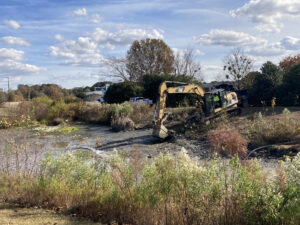
Position available: Stormwater Education Coordinator
April 18th 2024
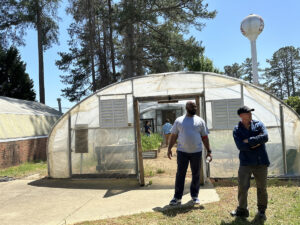
Southern Nash next in line for stormwater projects
April 18th 2024
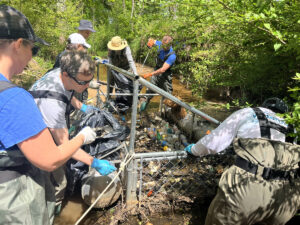
Xylem, Sound Rivers team up for cleanup
April 18th 2024
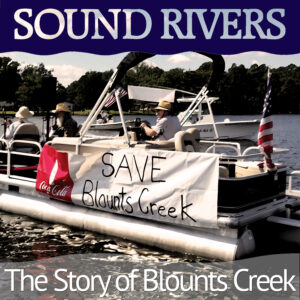
Sound Rivers launches new podcast
April 18th 2024
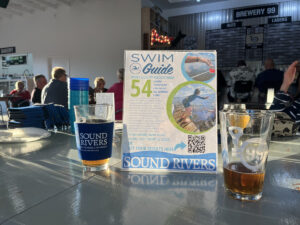
Swim Guide gearing up for a seventh season
April 11th 2024
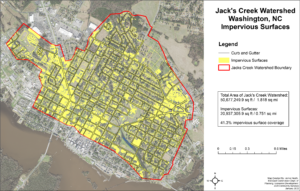
Feedback needed for Jack’s Creek plans, projects
April 11th 2024

Pamlico-Tar Riverkeeper talks water quality
April 11th 2024
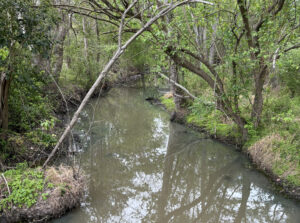
Pamlico-Tar Riverkeeper investigates Maple Branch turbidity
April 11th 2024

